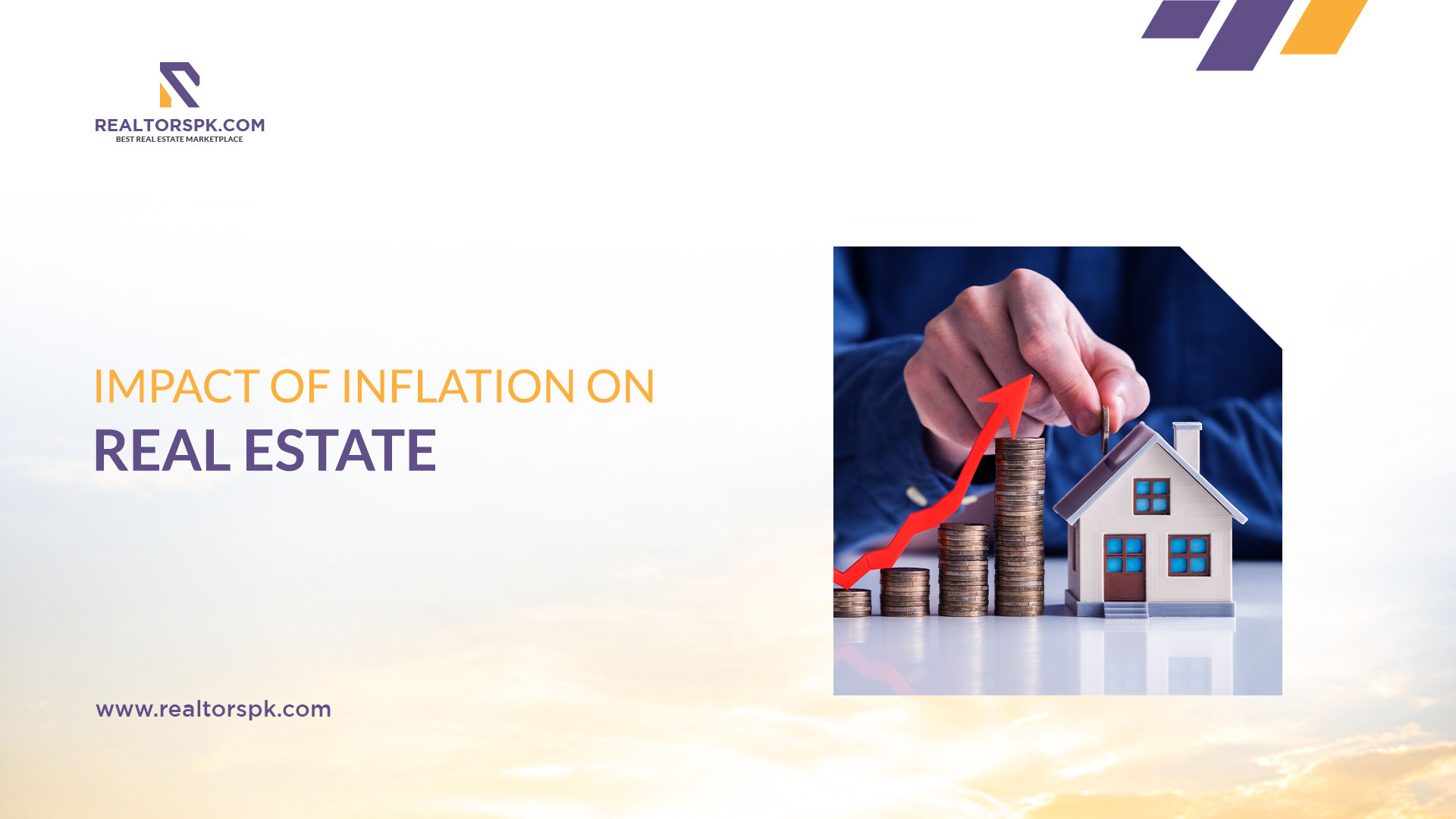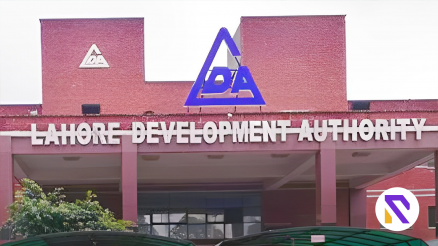Pakistan has been grappling with significant economic challenges recently, and inflation has been a major issue affecting various sectors.
Inflation is a term that is ubiquitous in discussions and media outlets. It refers to the gradual increase in the prices of goods and services over time. Its effects can be felt across various sectors, and one area that bears the brunt of its impact is the real estate marketplace in Pakistan. Inflation can significantly affect property values, construction materials, and labor costs.
In this blog, Realtorspk.com will explore the concept of inflation, its underlying causes, and the factors that contribute to it. We will also explore its specific effects on the real estate landscape in Pakistan.
What is Inflation?
Inflation refers to the gradual increase in the general price level of goods and services within an economy over a certain period. This can lead to a decrease in the currency’s purchasing power, which may impact individuals, businesses, and the economy as a whole.
Causes of Inflation
Inflation can stem from a variety of factors. These factors include:
1. Demand-Pull Inflation
This type of inflation occurs when the demand for goods and services exceeds the supply available in the economy.
2. Cost-Push Inflation
An increase in production costs, such as high wages or raw material prices, can lead to cost-push inflation.
3. Exchange Rate Fluctuations
Pakistan’s exchange rate is highly susceptible to fluctuations caused by various economic factors. A weaker rupee can significantly hike import costs, making imported goods and services more expensive and leading to inflation.
4. Global Commodity Prices
It is important to recognize that, like many countries, Pakistan relies on imports for crucial commodities such as oil and food. Changes in global commodity prices, whether increasing or decreasing, can impact Pakistan’s inflation.
5. Food Price Volatility
It is critical to note that food prices in Pakistan make up a substantial portion of the consumer price index (CPI). Any unfavorable weather conditions, crop failures, or disruptions in the supply chain can lead to a sharp increase in food prices, which creates inflationary pressures.
6. Rising energy prices
Pakistan is heavily dependent on imported energy sources such as oil and gas. Any fluctuations in global energy prices can directly impact inflation in the country. Higher energy costs lead to increased production and transportation expenses, often passed on to consumers.
7. Monetary Policy
The State Bank of Pakistan plays a critical role in curtailing inflation. It can utilize expansionary monetary policies, such as decreasing interest rates or augmenting the money supply, to stimulate demand, but one should keep in mind that it may also contribute to inflationary pressures.
8. Fiscal Policy
It is crucial to note that government spending and taxation policies significantly impact inflation. If the government increases spending without an accompanying rise in revenue, it can lead to inflationary pressures as more money enters the economy.
9. Supply Chain Shocks
Unforeseen disruptions in the supply chain, such as natural calamities or geopolitical events, can cause inflationary pressures.
10. Structural Issues
Pakistan’s inflation is primarily driven by the country’s structural issues, such as inadequate infrastructure, regulatory barriers, and inefficient agricultural practices, which severely impact the economy’s supply side.
11. Inflation Expectations
If individuals and businesses foresee an price escalation, they will undoubtedly adjust their behavior accordingly by demanding higher wages and raising their merits. This will inevitably create a self-fulfilling cycle of inflation.
12. Geopolitical Factors
The effects of political instability on the real estate industry of Pakistan are evident. Instability in politics, regional and global conflicts, and security apprehensions are major factors contributing to Pakistan’s inflation.
Now, let’s address the crucial question:
How Does Inflation Affect Real Estate in Pakistan?
Inflation has a complex relationship with the real estate sector. While it may seem counterintuitive, inflation can both positively and negatively impact property markets.
Positive impact of inflation on real estate in Pakistan
Impact on Property Prices
The impact of inflation on housing market in Pakistan can not be neglected. Inflation often increases property prices, making real estate a potential hedge against rising prices. This can be advantageous for property owners who experience the appreciation of their assets.
Rental Income
Inflation can lead to higher rental income for property owners, as tenants may need to pay more to keep pace with rising living costs. In fact, buying rental properties is one of the best investment opportunities in Pakistan.
Negative impact of inflation on real estate in Pakistan
Construction Costs
Inflation can drive up the cost of construction materials and labor, affecting property development projects. Developers may pass these increased costs on to buyers.
Market Stability
Inflation can introduce uncertainty into the real estate market as property values become more unpredictable. This can impact investment decisions and market stability.
Financing Challenges
High inflation rates can lead to higher interest rates, making it more expensive to finance property purchases. This can discourage potential buyers and slow down the real estate market.
FAQs
Will property prices fall in 2023 in Pakistan?
The real estate forecast for the year 2023 shows it will be a booming year for the real estate market. The main reasons are inflation, unstable gold prices, and the volatile stock market.
So, for those evaluating Cryptocurrency vs Real estate vs Stocks – Where to Invest? real estate will be a good choice.
How does higher inflation affect real estate?
The impact of inflation on property prices is quite substantial. Higher inflation reduces real estate affordability, increasing construction costs.
What is the future of real estate investment in Pakistan?
The real estate market in Pakistan is anticipated to grow by 30% in the coming years. Recently, the World Bank shared a report that states that the real estate sector is the second-largest job-creating sector after agriculture.
How does political instability impact real estate investment in a country?
Political instability can significantly impact the real estate sector by increasing regulations and property rights uncertainty. Investors should conduct in-depth research to mitigate risks, diversify portfolios across stable markets, and consider political risk insurance.
Are there any benefits to investing in real estate during inflation?
Yes, property values are prone to an increase with inflation. The rental income can also increase, providing a steady income stream.
Let’s Wrap it up
Understanding the intricate relationship between inflation and real estate in Pakistan is paramount for those who intend to make informed decisions while investing in property. It is worth noting that, on one hand, inflation can potentially lead to higher property prices and rental income for investors. On the other hand, it can pose financing and market stability challenges. Hence, it is essential to comprehend the multifaceted dynamics between inflation and real estate to navigate the property market effectively in Pakistan.
Read More:











